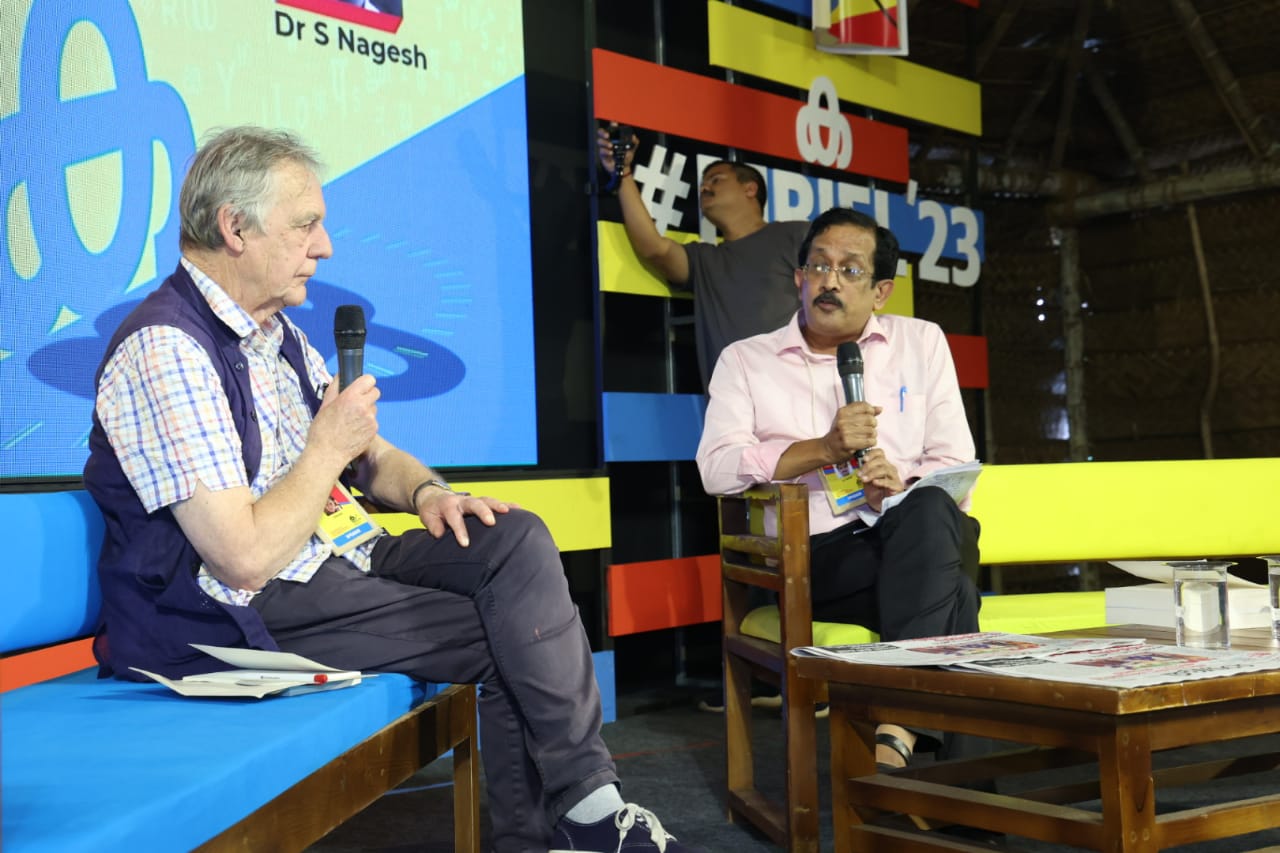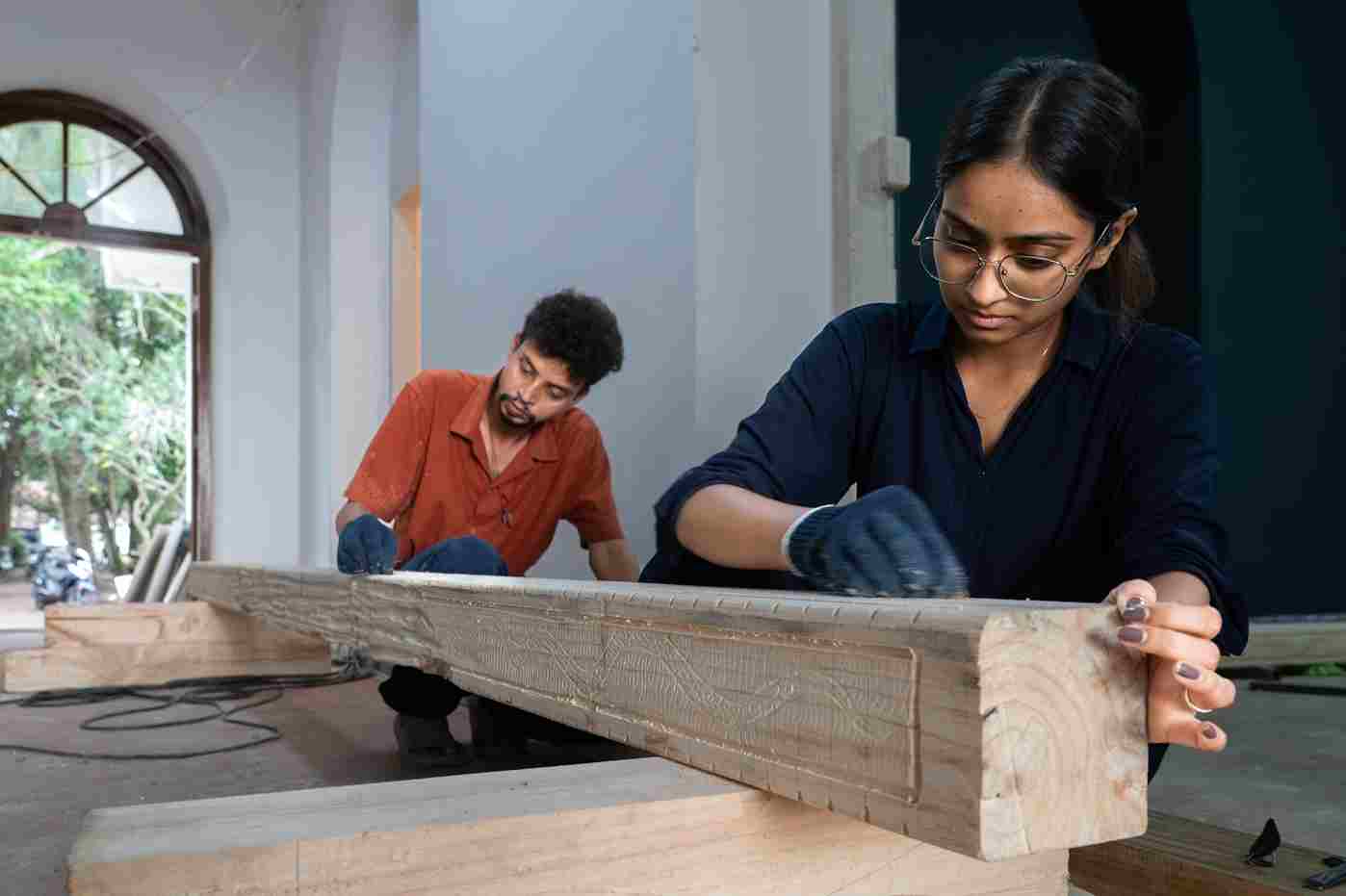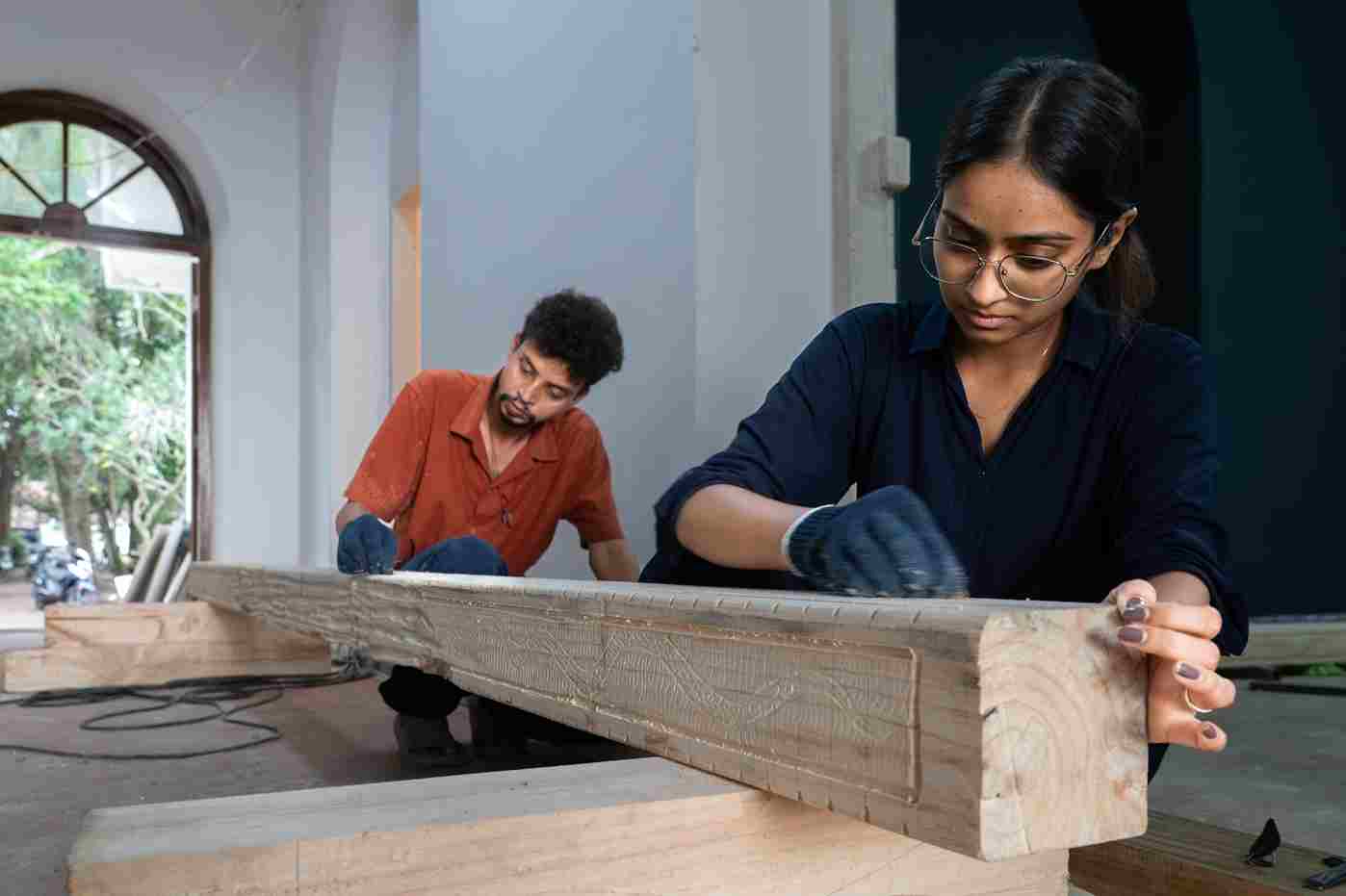Historical research needs look beyond libraries and archives: John Keay
Trivandrum / February 3, 2023
Thiruvananthapuram, Feb. 04: Historical research should pan over diverse fields of knowledge and experience instead of limiting it entirely to libraries and archives in order to make any narration of the past comprehensive and interesting, says British historian and author John Keay.
“History writing becomes comprehensive when the research that goes into it gathers materials from different areas like geography, geology, topography and accounts of travellers,” he said at the four-day ongoing Mathrubhumi International Festival of Letters (MBIFL 2023) here.
Mr Keay, who has written widely-read histories of India, China and the Far East, was sharing his experience and perspectives in a freewheeling talk with Dr S Nagesh on “Shadows of the Past” at MBIFL, one of India’s leading cultural events.
“Shadows of History; lights of future is the focal theme of the 4th edition of MBIFL that opened here on February 2, bringing together writers, scholars and cultural personalities from around the world.
Mr Keay said the history of history writing in India is as interesting to him as writing the history of India as it is a process of discovering this country with a lot of fresh details.
“The story of India is long and complicated. For instance, it is very much interesting to search how much of Indian history was rediscovered or unearthed by the scholars during the British Raj, and piece them together to write the history of the last 300 to 400 years,” he said.
Noting that historical research is similar to travelling, Mr Keay said both have an element of discovery.
History has a story to tell, its themes and characters. To make it comprehensive and fascinating the historian has to explore various fields related to the particular subject on hand. For instance, how climate change impacted history of the distant past, now just today, is an interesting area of study.
Rather than merely confining to libraries and archives the historian has many other things to undertake like travelling to places of interest, he said, adding he would like to be known as a ‘travelling historian’ and not an ‘academic historian’.
To a question, what difference he came across while writing histories of India and China, the historian said the history of China is entirely based on documentations but there are no great documentation to rely upon for writing history of the pre-Islamic India, except a few wonderful chronicles like Kalahana’s Raja Tarangini.
“Chinese are very history-conscious. History is created all the time by Chinese historians, focusing on emperors and dynasties. This throws up its own complications and contradictions. Inwriting the history of India, one has to scramble for materials to work on,” he noted.
Mr Keay said he is delighted to see the recent resurge in narrative history in India.“I Think history needs a story, its characters and skill for writing. All the great writers of English history were not academic historians,” said the prolific author, whose widely-appreciated works include his latest “Himalaya: Exploring the roof of the world”.
He, however, added he is very much dependent on academic history while writing about India.
To a question on how he saw the stand-off between India and China, Mr Keay said it could lead to adverse fallout onresources of the sensitive Himalayan region, especially on water, if the stiff competition between the two countries prolongs.
Now into its fourth edition, the February 2-5 MBIFL has lined up leading writers, artists and scholars from around the world and different Indian states to engage in riveting conversations.
The current edition of MBIFL coincides with the centenary of Mathrubhumi, one of India’s leading media houses, founded in 1923 as the powerful voice of the freedom movement.
Photo Gallery



